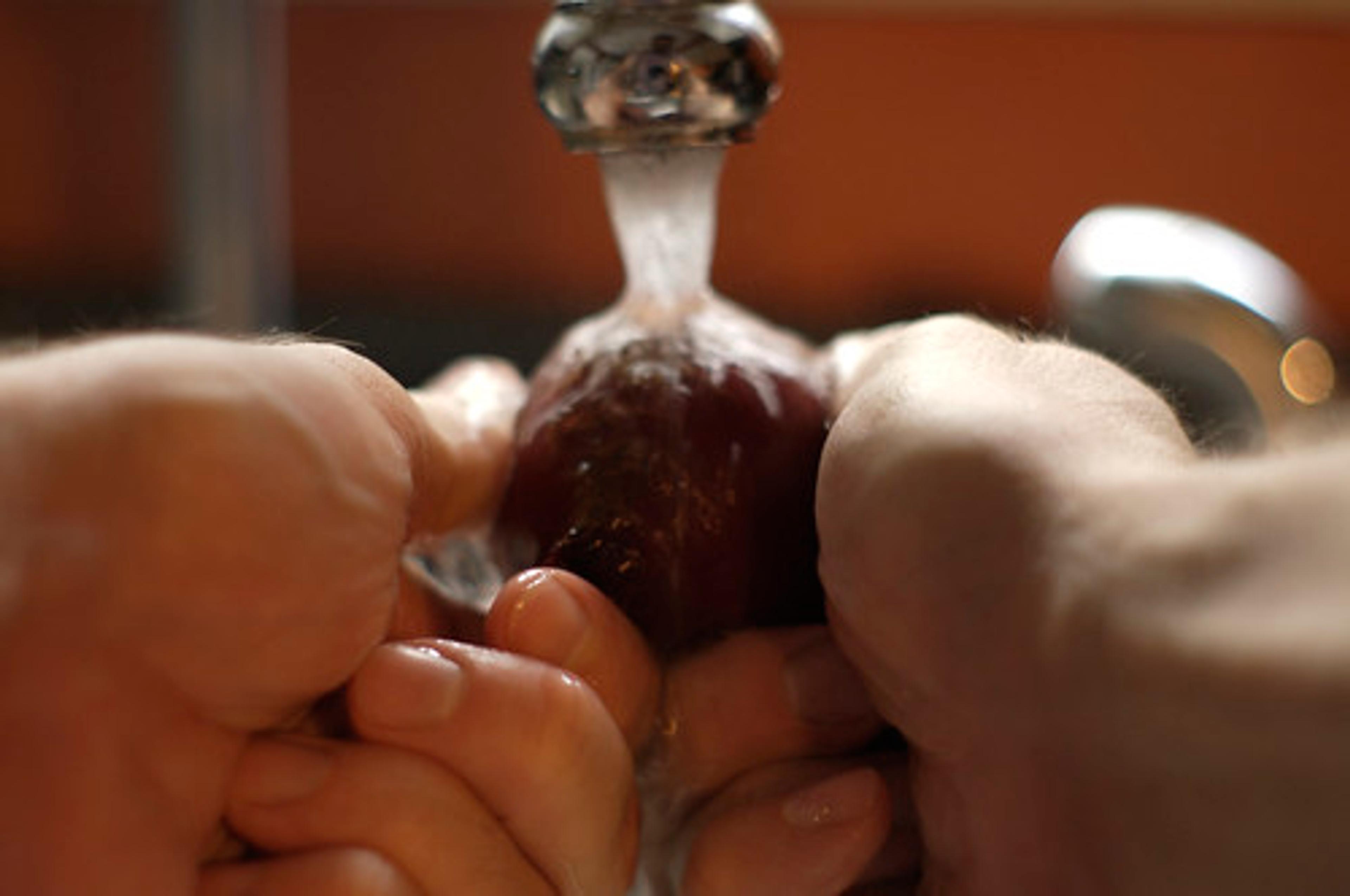Can’t Eat Organic? Here’s How to Lower the Chemical, Bacteria Content of Your Food
Sven Gustafson
| 2 min read

Eating organic is a beautiful thing — after all, who wouldn’t prefer that their fruits and vegetables weren’t slathered in hard-to-pronounce chemical pesticides. Unfortunately, organic produce is often expensive, and for large swaths of the population, it’s unavailable or hard to find. And even if you are avoiding pesticides, experts note that organic food can contain harmful bacteria.
Fortunately, there are ways you can mitigate the impact of pesticide residues on your food without breaking the bank.
One of the easiest things you can do as a consumer is familiarize yourself with the so-called Dirty Dozen list, which identifies the 12 fruits and vegetables with the highest pesticide contents and the 15 with the lowest.
So for example, if you can’t always afford to buy organic, it helps to know that onions, watermelon and asparagus are generally much less contaminated than apples, celery and strawberries, which topped the 2011 Dirty Dozen list.
That said, if you’re still concerned and can’t find, say, organic peaches, there are ways to rinse your produce using commercial products and relatively simple, homemade fixes. But do they really work?
Researchers at the Connecticut Agricultural Experiment Station in 2000 compared four name-brand fruit and vegetables wash products with a 1-percent Palmolive solution and rinsing with water alone. Most but not all pesticides examined were significantly reduced with a water rinse.
“There is little or no difference between tap water rinsing or using a fruit and vegetable wash in reducing residues of the nine pesticides studied,” the study authors wrote. They recommended that people who want to decrease their intake of pesticides rinse all fresh produce under tap water for at least 30 seconds.
Here’s a segment from a news station in St. Louis that found water and a vinegar-water solution to be pretty effective at ridding produce of pesticides and bacteria:
And in this version, the “smart shopper” from ABC 15 shows you a good rinsing technique:
I also found these recipes for mixing your own produce wash using either grapefruit seed extract, vinegar and baking soda, or lemon juice with vinegar and water.
Do you worry about rinsing your produce? Got any good suggestions for how to do it?
Photo by greg.turner.





